Roman July’s Journey of Faith, Music, and Patriotism
Practically all Russian American Media community events begin with a time-honored tradition—a moving rendition of “God Bless America” performed by one of the most beloved “Golden Voices” in our community: Roman July.
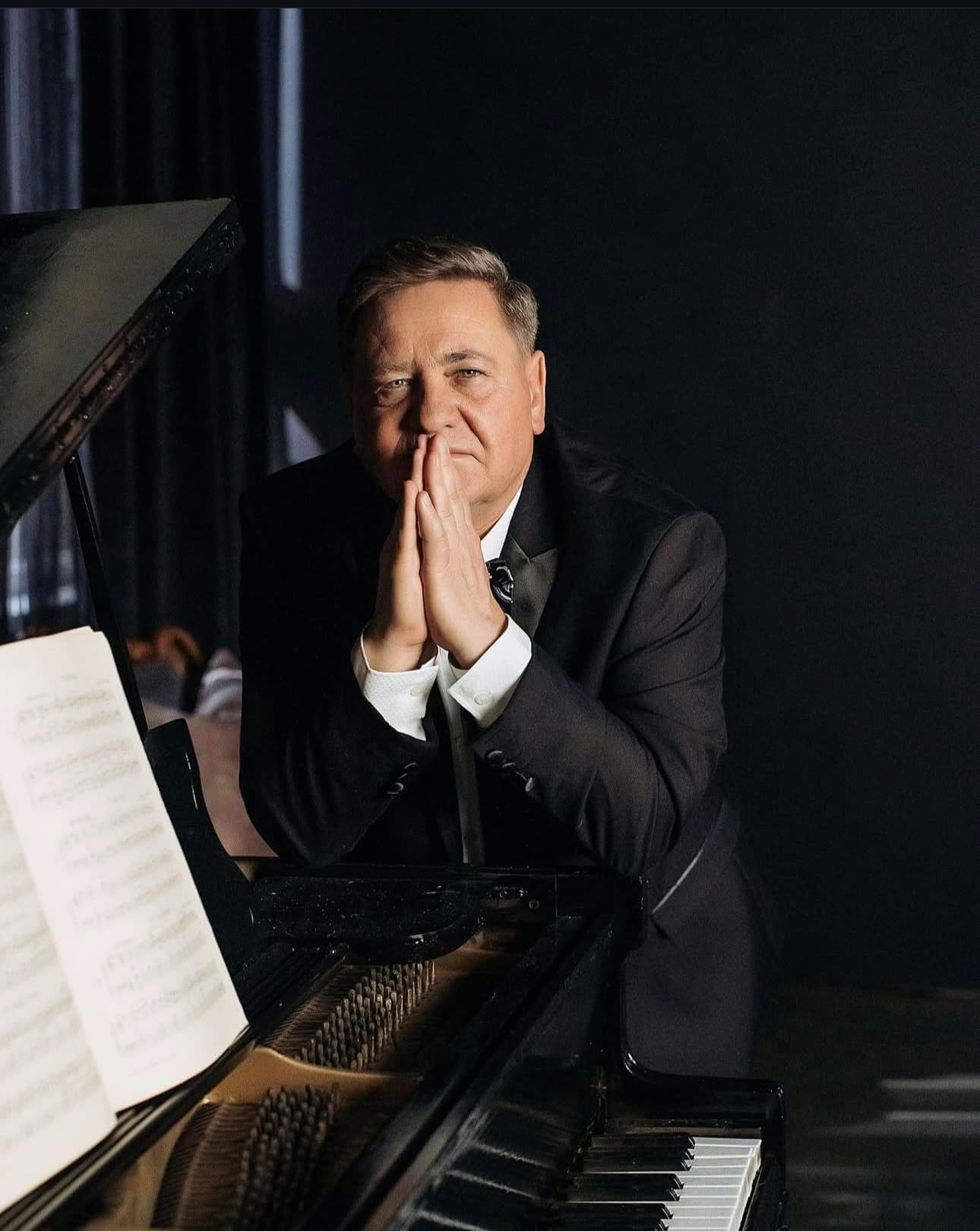
His inspiring delivery not only celebrates the nation we proudly call home but also carries deep personal meaning. Born into a creative and faith-driven family, Roman was profoundly influenced by his father Zinoviy—a physician and gifted poet—who taught him the importance of delivering a message straight to the heart through song. His mother Diana, a talented composer, remains an enduring example of faith and artistic inspiration.
As many know, “God Bless America” was written by Slavic immigrant Irving Berlin and has become a lasting symbol of unity at patriotic events across the United States. It reflects the beauty of diverse cultures coming together to enrich our shared community—an emotion Roman July powerfully captures in every performance.
Following one of his stirring renditions, we sat down with Roman July, the celebrated vocalist whose Christian and patriotic songs have made him a beloved symbol of spiritual inspiration and cultural unity within California’s Russian- and Ukrainian-speaking community.
Roman, your voice has become an anthem of faith and patriotism. Tell us—where did your musical journey begin?
I was born into a musical family where faith and music were deeply intertwined. My father Zinoviy was a professional physician and a writer of Christian hymns, and my mother Diana was an engineer and songwriter. From a young age, music was a way of life for us—a tool for worship, encouragement, and expression. Growing up surrounded by powerful lyrics and harmonies, I found my calling early.
As many know, “God Bless America” was written by Slavic immigrant Irving Berlin and has become a lasting symbol of unity at patriotic events across the United States. It reflects the beauty of diverse cultures coming together to enrich our shared community—an emotion Roman July powerfully captures in every performance.
Following one of his stirring renditions, we sat down with Roman July, the celebrated vocalist whose Christian and patriotic songs have made him a beloved symbol of spiritual inspiration and cultural unity within California’s Russian- and Ukrainian-speaking community.
Roman, your voice has become an anthem of faith and patriotism. Tell us—where did your musical journey begin?
I was born into a musical family where faith and music were deeply intertwined. My father Zinoviy was a professional physician and a writer of Christian hymns, and my mother Diana was an engineer and songwriter. From a young age, music was a way of life for us—a tool for worship, encouragement, and expression. Growing up surrounded by powerful lyrics and harmonies, I found my calling early.
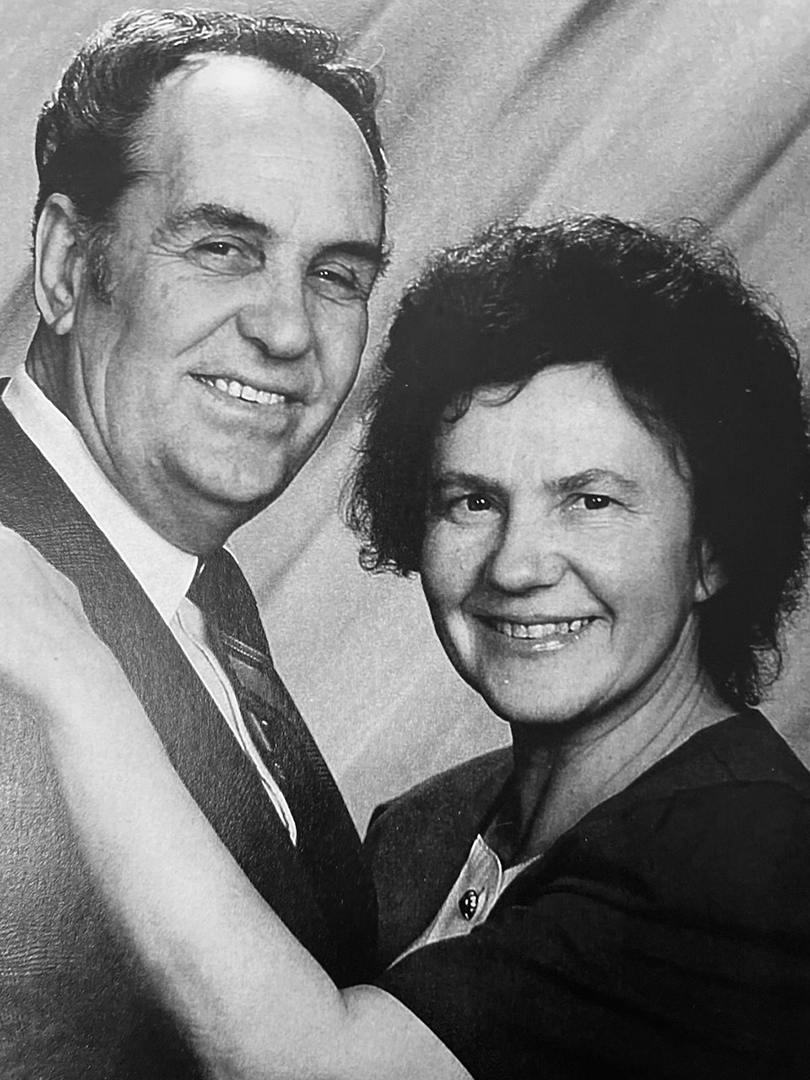
So your family played an active role in shaping your musical values?
Absolutely. My parents weren’t just musicians—they were examples of what it means to live with purpose. Their hymns carried deep theology and truth. My father taught me not just to perform but to connect with the heart of the listener. I carry my parents’ legacy every time I walk onto a stage. It’s more than music—it’s ministry.
What inspires you the most when performing Christian and patriotic songs?
The message. Every song must carry a purpose. When I sing about faith or about this beautiful country we live in, I’m not just sharing a melody—I’m sharing a testimony. Music is a language that goes beyond words. It can lift someone’s spirit, bring them closer to God, or remind them of the values that matter most. That’s what inspires me—to give people hope, healing, and a reason to pause and reflect.
When did you discover your talent?
Music has been part of my life from the very beginning. I have recordings of myself singing at four years old. Being surrounded by music from such a young age deeply shaped my passion and my ministry.
Absolutely. My parents weren’t just musicians—they were examples of what it means to live with purpose. Their hymns carried deep theology and truth. My father taught me not just to perform but to connect with the heart of the listener. I carry my parents’ legacy every time I walk onto a stage. It’s more than music—it’s ministry.
What inspires you the most when performing Christian and patriotic songs?
The message. Every song must carry a purpose. When I sing about faith or about this beautiful country we live in, I’m not just sharing a melody—I’m sharing a testimony. Music is a language that goes beyond words. It can lift someone’s spirit, bring them closer to God, or remind them of the values that matter most. That’s what inspires me—to give people hope, healing, and a reason to pause and reflect.
When did you discover your talent?
Music has been part of my life from the very beginning. I have recordings of myself singing at four years old. Being surrounded by music from such a young age deeply shaped my passion and my ministry.
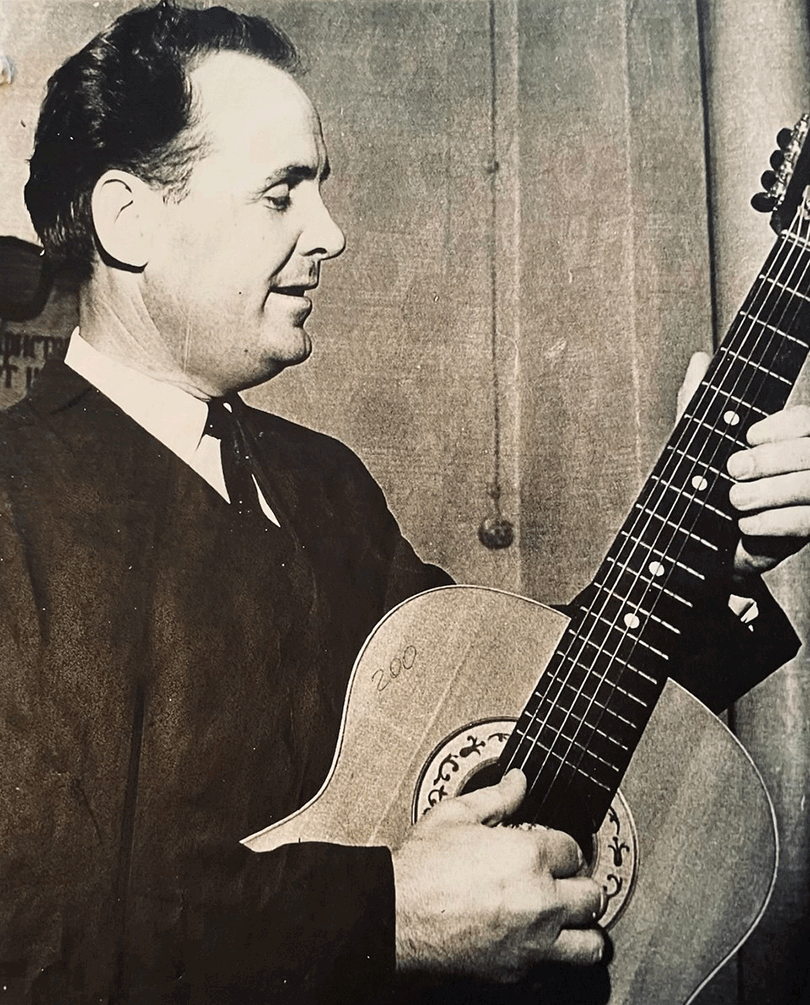
Roman, tell us a little more about yourself. When did you immigrate to the United States? Did you speak any English before coming here?
Our family immigrated to the United States as religious refugees in July 1991.
Sorry to interrupt—did I hear you mention July? Is that where your last name “July” comes from?
I’m not surprised by that question—others have asked me the same! To answer: my last name is indeed July, and I was born with it in Ukraine. In Ukrainian, it’s spelled slightly differently with six letters, but pronounced the same. Interestingly, two of my sons were born in the month of July. One of them was even born on July 4th—Independence Day—and we gave him the middle name “Sam,” after Uncle Sam! When we immigrated, our first city in America was Pittsburgh, Pennsylvania. I had studied some English in school, but it was very basic. From the first day here, we began attending ESL (English as a Second Language) classes. Then, in 1993—by the grace of God—I was honored to serve as a Russian-language translator for the world-renowned Evangelical preacher Billy Graham during his crusade in Pittsburgh. That unforgettable experience deeply impacted my life and faith.
You grew up in a Christian environment during a time of persecution. When did you first perform on a public stage, and what was that experience like?
At 18, I began a three-year service in the Soviet Navy. One of the most memorable moments came when I sang before my commander, who was so moved that he granted me a ten-day leave to visit my family. Another unforgettable experience occurred during the period of religious reforms under President Mikhail Gorbachev. My church, where my mother was a choir conductor, began participating in large Evangelical crusades. In 1988, my mother’s choir traveled to Crimea, where I was stationed. That evening, my brother, also serving nearby, sat at the piano in his army uniform while I sang in my navy uniform about Christ being the cornerstone of peace. It was surreal—a rare moment where faith and military life intertwined so powerfully.
Our family immigrated to the United States as religious refugees in July 1991.
Sorry to interrupt—did I hear you mention July? Is that where your last name “July” comes from?
I’m not surprised by that question—others have asked me the same! To answer: my last name is indeed July, and I was born with it in Ukraine. In Ukrainian, it’s spelled slightly differently with six letters, but pronounced the same. Interestingly, two of my sons were born in the month of July. One of them was even born on July 4th—Independence Day—and we gave him the middle name “Sam,” after Uncle Sam! When we immigrated, our first city in America was Pittsburgh, Pennsylvania. I had studied some English in school, but it was very basic. From the first day here, we began attending ESL (English as a Second Language) classes. Then, in 1993—by the grace of God—I was honored to serve as a Russian-language translator for the world-renowned Evangelical preacher Billy Graham during his crusade in Pittsburgh. That unforgettable experience deeply impacted my life and faith.
You grew up in a Christian environment during a time of persecution. When did you first perform on a public stage, and what was that experience like?
At 18, I began a three-year service in the Soviet Navy. One of the most memorable moments came when I sang before my commander, who was so moved that he granted me a ten-day leave to visit my family. Another unforgettable experience occurred during the period of religious reforms under President Mikhail Gorbachev. My church, where my mother was a choir conductor, began participating in large Evangelical crusades. In 1988, my mother’s choir traveled to Crimea, where I was stationed. That evening, my brother, also serving nearby, sat at the piano in his army uniform while I sang in my navy uniform about Christ being the cornerstone of peace. It was surreal—a rare moment where faith and military life intertwined so powerfully.
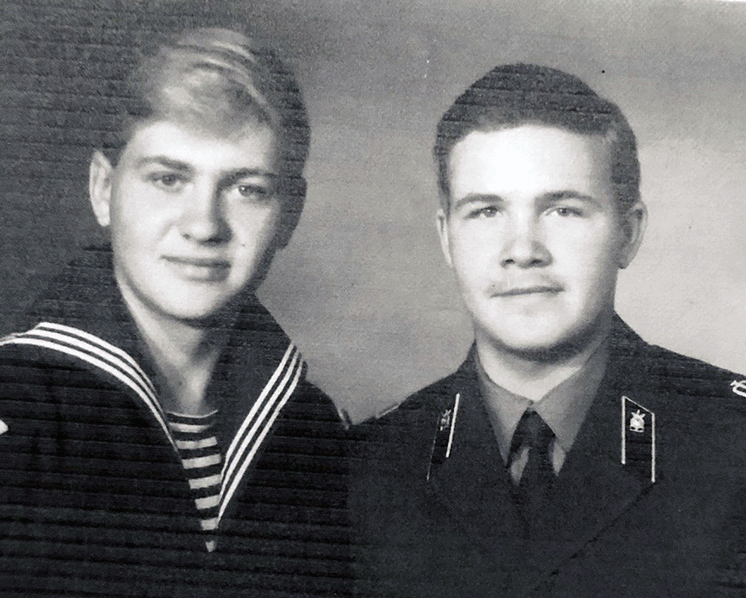
Your ministry has reached audiences worldwide. Where have you performed, and how have those experiences impacted you?
By God’s grace and through the legacy of my parents’ music, I’ve traveled not only across the former Soviet Union but also to Canada, Germany, Italy, Portugal, Cuba, and many states across America. It’s been incredibly uplifting to see how people everywhere appreciate our merciful God.
You’re often introduced as “The Golden Voice of the Slavic Community.” When did you receive this title?
Since 2004, I’ve sung “God Bless America” at the California State Capitol and at numerous political, public, and sporting events. In 2007, during a “Best” event organized by Russian American Media, I was honored with the title “Golden Voice of the Slavic Community.”
How do you view that responsibility?
It’s humbling. I don’t take it lightly. Every performance is a chance to represent my faith, my heritage, and my people. Someone may be hearing this message for the first time—and it might change their life.
Tell us about your journey—what has your experience been like, and what was the largest crowd you’ve ever performed for?
My singing journey began long before we came to the U.S. Back in the Soviet Union, we sang at large Christian crusades in stadiums filled with thousands—even tens of thousands. In the U.S., I continued performing at Christian congresses and hosted my first solo event, “On the Wings of Song,” in 2003 at Arcade Church in Sacramento. The 1,500-capacity venue sold out, and hundreds more watched via livestream. Another highlight was singing at the California State Capitol for events attended by thousands. But the largest audience I reached was during the 2008 Olympics in Beijing. On August 8, 2008 (8/8/08—a lucky date in Chinese culture), I was invited by APAPA to sing “God Bless America” at Cal Expo in Sacramento. The performance was simulcast to China—an unforgettable moment seen by hundreds of thousands.
By God’s grace and through the legacy of my parents’ music, I’ve traveled not only across the former Soviet Union but also to Canada, Germany, Italy, Portugal, Cuba, and many states across America. It’s been incredibly uplifting to see how people everywhere appreciate our merciful God.
You’re often introduced as “The Golden Voice of the Slavic Community.” When did you receive this title?
Since 2004, I’ve sung “God Bless America” at the California State Capitol and at numerous political, public, and sporting events. In 2007, during a “Best” event organized by Russian American Media, I was honored with the title “Golden Voice of the Slavic Community.”
How do you view that responsibility?
It’s humbling. I don’t take it lightly. Every performance is a chance to represent my faith, my heritage, and my people. Someone may be hearing this message for the first time—and it might change their life.
Tell us about your journey—what has your experience been like, and what was the largest crowd you’ve ever performed for?
My singing journey began long before we came to the U.S. Back in the Soviet Union, we sang at large Christian crusades in stadiums filled with thousands—even tens of thousands. In the U.S., I continued performing at Christian congresses and hosted my first solo event, “On the Wings of Song,” in 2003 at Arcade Church in Sacramento. The 1,500-capacity venue sold out, and hundreds more watched via livestream. Another highlight was singing at the California State Capitol for events attended by thousands. But the largest audience I reached was during the 2008 Olympics in Beijing. On August 8, 2008 (8/8/08—a lucky date in Chinese culture), I was invited by APAPA to sing “God Bless America” at Cal Expo in Sacramento. The performance was simulcast to China—an unforgettable moment seen by hundreds of thousands.
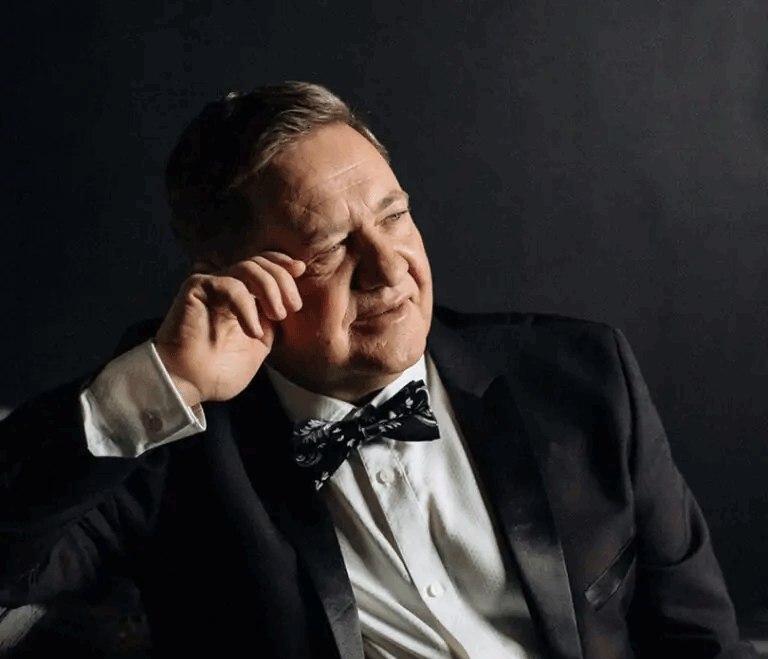
What is your vision for the future?
I want to continue using my voice to build bridges—between generations, cultures, and hearts. I also hope to mentor younger artists who feel called to use their talents for good. In today’s world, we need more messages of faith, family, and freedom. If I can be even a small part of that, I’m grateful.
I want to continue using my voice to build bridges—between generations, cultures, and hearts. I also hope to mentor younger artists who feel called to use their talents for good. In today’s world, we need more messages of faith, family, and freedom. If I can be even a small part of that, I’m grateful.
•••
Roman July’s music continues to resonate far beyond church walls and concert halls. With a voice that carries both power and compassion, he remains one of the most inspiring figures in our community—proof that music rooted in truth and purpose will always find a home in people’s hearts.
In recognition of his extraordinary contributions to cultural unity, patriotism, and spiritual inspiration, Roman July was honored with a special award at the Best Business Awards Ceremony & Gala, where he received the official title of The Golden Voice of the Slavic Community. This distinguished recognition celebrates not only his remarkable musical talent but also his lifelong dedication to uplifting and connecting people through faith, music, and community leadership. Roman July’s voice has become a symbol of hope and unity—an enduring testament to the power of one individual to touch countless lives.





